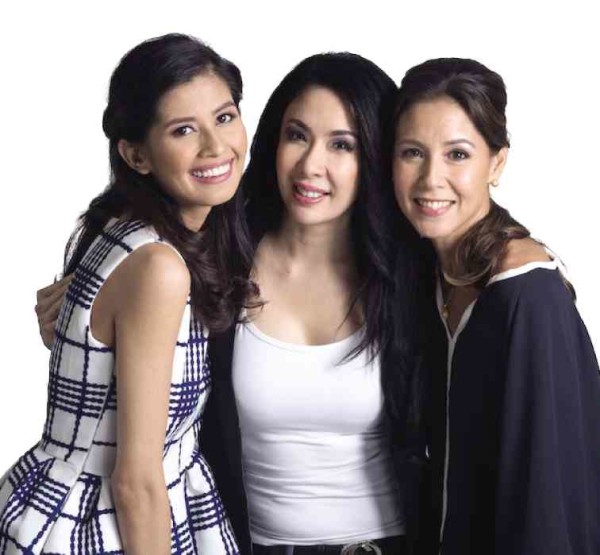As we watch TV from day to day, it becomes clear to us that a key factor in a show’s success is its judicious mix of program hosts.
That’s because the unique “personality” of a program is vivified and “represented” by the people headlining it.
So, if a show clicks, no major changes in the configuration of its hosts should be made, at the risk of altering or eroding the positive effect it’s had on viewers.
To illustrate: When CNN Philippines’ “Real Talk” started telecasting, it was cohosted by Christine Jacob-Sandejas, Giselle Sanchez and Shamcey Supsup. They were a good study in contrasts—Shamcey was lovely, Christine was a focused combination of housewife, sports star and career woman, and Giselle provided the ditzy fun and feistiness.
In time, however, Shamcey and Giselle left the show, and Christine now cohosts it with Rachel Alejandro.
As a result, the program is no longer as temperamentally varied as it used to be, since its two cohosts, now agree on most things, and even sort of looked alike.
Even when Rachel can’t make it for a particular telecast, her replacement for the day tends to be another lady in her 40s—so, where’s the much needed contrast?
On CNN Philippines’ “New Day” morning show, the cohosts are Andrei Felix, Claudine Trillo, Karen Jimeno, Amelyn Veloso and Claire Celdran.
The preponderance of ladies is not that big of a drawback, it’s more the fact that all of the hosts are trying to be pleasant, upbeat, chatty and nice.
Why is this a problem? Again, there’s too little contrast and “mixed representation.”
Even when they’re all weighing in on the same issue, they tend to come from the same generic or “safe” place, and predictable point of view.
Much of the time, nobody is ready to offer a radically different contrarian or controversial view, perhaps for fear of “disturbing” or “offending” some viewers, especially so early in the morning, when everything is supposed to be all sweetness and optimism and light.
Fine, but why does it have to take a lot of people to do pretty much the same thing? No, some viewers want contrast and disagreement from time to time, because it can literally “spark” an unusually enlightening discussion, leading to an unexpected insight.
That isn’t possible when most everybody is determinedly pleasant and agreeable, and smilingly seconding each other’s motion and notion.
Generalizing now, the relative lack of contrast and productive “disagreement” on local talk-oriented shows could indicate that our TV networks don’t exert enough effort to discover potential program hosts who are strong individuals rather than pleasantly proficient types.
Please observe that many of our big talk-TV stars are vivid and even idiosyncratic personalities, with similarly strong opinions and points of view.
They’ve lasted for years because of this, so relative newbies should develop themselves in this direction, if they want to make it on their own.
Stop being so agreeable and cultivate your unique personality and opinions.


